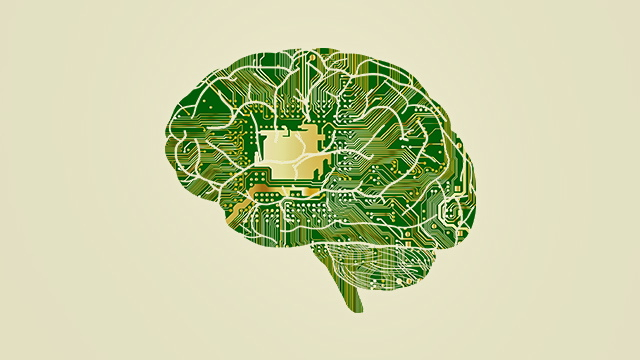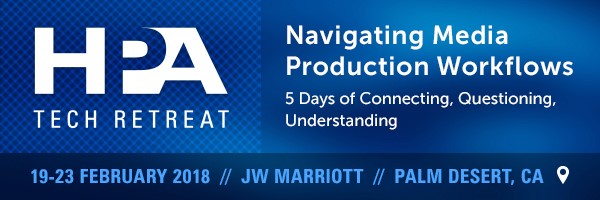HPA 2018: Imagining the Future of AI and Storytelling in Media
February 22, 2018
At the HPA Tech Retreat Wednesday breakfast roundtables, program director Yves Bergquist led a discussion on the work he is doing at ETC on storytelling and artificial intelligence. “We’re doing a lot of research around how to create a more semantic understanding of narrative structures and create a machine-readable understanding of storytelling,” he explained. HPA Tech Retreat regular Jim Burger, an attorney who sat at the table, engaged in a conversation with Bergquist about the copyright infringement potential of AI and storytelling.
Bergquist described how the basis of his AI research is that, “stories have a very algorithmic structure.” “Our brain being unable to represent of the complexity of the universe compresses it into scripts and reductions,” he said, adding that we are culturally biased towards specific pre-existing stories. “We do a lot of work about how to recognize the various semantic structures of stories and try to understand which ones perform better.”
Looking closely at the semantic structure of narrative yields interesting results, he said. “There is very consistent structure in the kind of stories that are popular,” he noted. “They tend to have a consistent ratio of aspects that are traditional in that genre and very new attributes on top. We think that explains a cognitive model of interestingness.”
The ETC project is to look at that ratio to explain performance. Bergquist said the project looks at a wide variety of parameters including music, the characters’ emotional tonality, color, editing pace, white balance, composition and more.
“We’re teasing out what combination of elements intrigues audiences,” he said. “We’re also creating a classification scheme for every attribute in film and trying to understand how one is different from the other.” He noted that he is currently building that platform, which he believes will take nine to 12 months. He’s already fed a few films into the platform, to prototype its capabilities.
Burger immediately had questions for Bergquist, noting that the use of AI for storytelling “brings up many interesting legal issues.” First was how to decide who the copyright owner is of AI-generated content. “That’s the easy question,” Burger said. “In most cases, there has to be an actor. It can’t be a monkey or a machine. You could pick a number of people in the AI constellation that could own the copyright. I think that will be assigned by contract.”
The second, more complicated question is the database the AI algorithm uses to generate scripts or other creative content. “The problem is for AI to work you need a rich database to write a script,” he said. “Maybe the studio owns enough scripts that you can put them all in there. It only works if you own all the data or it’s in the public domain.”
If the output [of the AI platform] replicates the expression of copyrighted material, Burger added, it could potentially veer into copyright infringement territory.
Burger and Bergquist did a deep dive into whether or not AI algorithms in fact do copy text or expression. “The computer doesn’t understand worlds but creates a mathematical representation,” said Bergquist. “It’s a mathematical semantic structure, its own representation of that text.” Nothing was resolved, but both Bergquist and Burger agreed that the topic is worth examining again.



No Comments Yet
You can be the first to comment!
Sorry, comments for this entry are closed at this time.